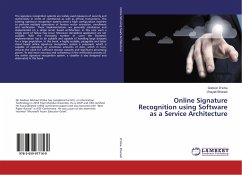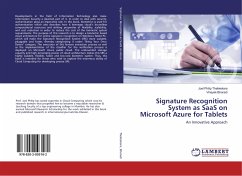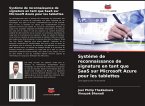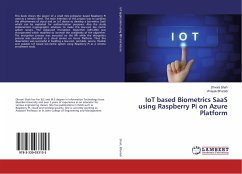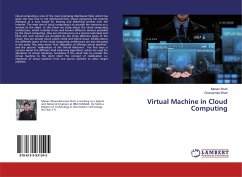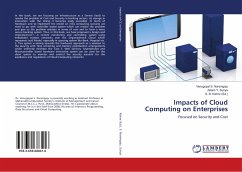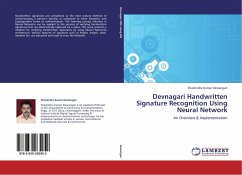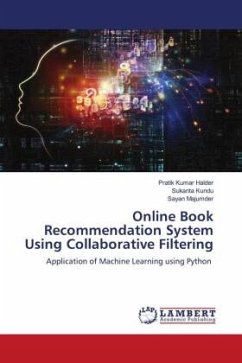The signature recognition systems are widely used measures of security and authenticity in terms of commercial as well as official transactions. The existing signature recognition systems need a high configuration machine to perform multiple operations of feature vector extraction, enrollment and verification. These implementations are generally standalone and implemented on a single server based architecture, in this case even a single point of failure may occur. Moreover standalone application are not scalable. With the increasing number of users the biometric implementation has to be scalable and capable of handling large datasets for a large population. In this book, a highly scalable, pluggable and faster cloud based online signature recognition system is proposed, which is capable of operating on enormous amounts of data, which in turn, induces the need for sufficient storage capacity and significant processing power. To add more accuracy and consistency in the verificationprocess of the online signature recognition system, a classifier is also designed and elaborated in this book.
Bitte wählen Sie Ihr Anliegen aus.
Rechnungen
Retourenschein anfordern
Bestellstatus
Storno

